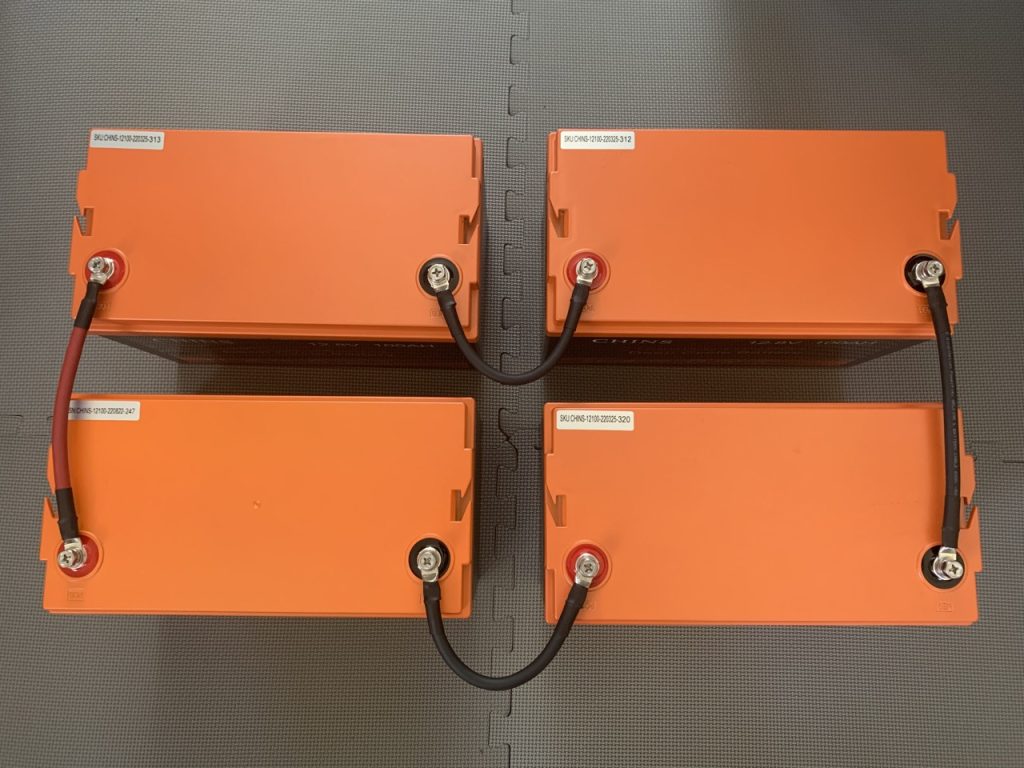The connection configuration of OPzV batteries—whether in series, parallel, or a combination—plays a significant role in determining the type and size of cables required. Here are some best practices for cable selection:
1. Series Connection
In a series connection, the voltage of the system increases while the current remains constant. The cables must be rated for the full current of the system. Additionally, uniform cable lengths should be used between battery terminals to maintain balanced resistance and avoid uneven charging or discharging.
2. Parallel Connection
For parallel configurations, the system voltage remains constant, but the current is shared between multiple branches. In this case, it’s crucial to ensure that each branch has the same cable size and length to achieve uniform current distribution. Using oversized cables can prevent overheating and unbalanced currents.
3. Terminal-to-Terminal Connections
The cables connecting individual battery terminals should be of high flexibility and low resistance. Tinned copper conductors are often preferred because they resist corrosion and provide excellent conductivity.
4. Busbar Design
If using busbars for large systems, the cables connecting the batteries to the busbars must be sized appropriately for the maximum current. Insulated lugs or connectors should be used to ensure secure and safe connections.
5. Environmental Considerations
The ambient environment plays a critical role in cable selection. In hot or corrosive environments, use cables with enhanced insulation and corrosion resistance to ensure longevity.
6. Regular Maintenance
Choose cables that allow for easy inspection and maintenance. Clearly label each cable to simplify troubleshooting and ensure proper reinstallation after maintenance.
By adhering to these best practices, you can design a reliable and efficient cable system for your OPzV battery configuration.


